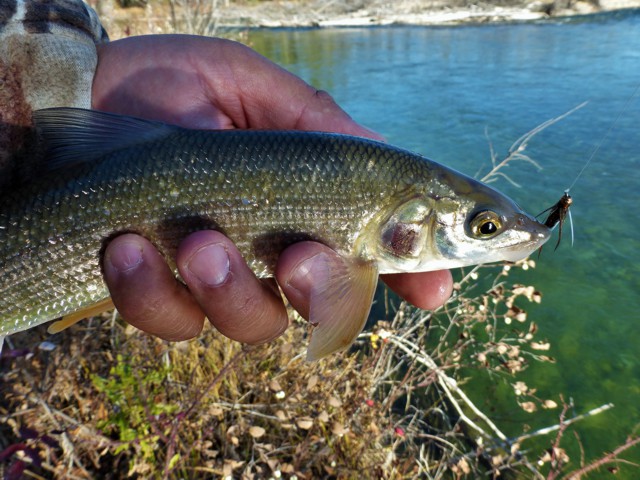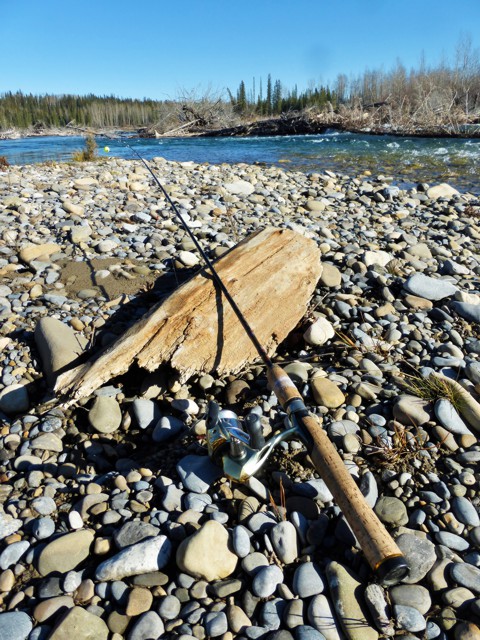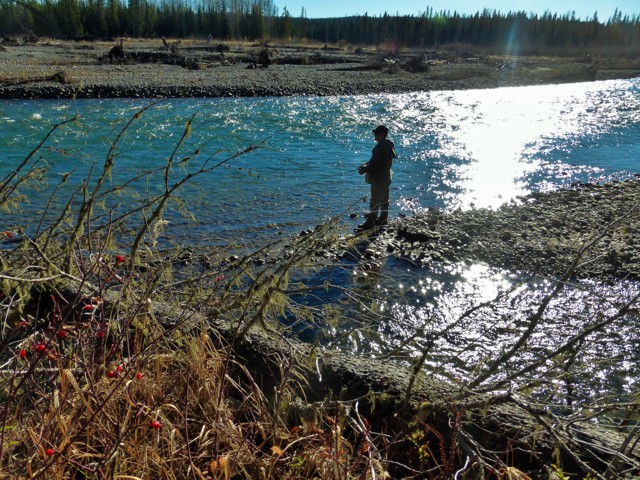To catch Rockies, as they often called, the thing to remember is that they are extreme bottom feeders. Nine times out of 10 a Rocky will choose to feed right on the bottom. Their mouths are designed for picking things off the bottom. Looking at a Rocky you’ll notice that they have small mouths, and a bulbous nose. These body characteristics should give you clues about what they feed on, typically small nymphs, using that nose to poke around the rocks and root them out.

Get a nymph on bottom and if a Rocky is in the area, you’ll know about it quickly
The best way to catch Rockies is with a small nymph fly right on the bottom and let it tick downstream into the paths of holding fish. I do this by attaching a small split shot a couple feet up my line from the fly. I then cast the rig out sideways to the current and let it tick along bottom, all the while keeping a finger on the line by the reel to enhance bite detection. This is far and away the simplest and easiest method to go from looking at fish to catching them. Use a flexible rod, typically a light action 6 and a half to 7 foot spinning rod with either 4 or 6 pound test. This will give you the perfect outfit for detecting the bite, and then fighting the fish. If you do the fly fish thing, a 5 weight or lighter outfit will be a good match.

A light action rod is the perfect tool to detect bites, fight, and land the soft mouth whitefish
Whitefish have soft mouths, so take your time when the fight is on. Use a light hand and a flexible rod. You’ll find yourself landing lots once you have them located. That’s about all you need to know to set up a great fall fishing experience. Happy catching.

Fall days on our mountain and foothill streams are quite glorious!

